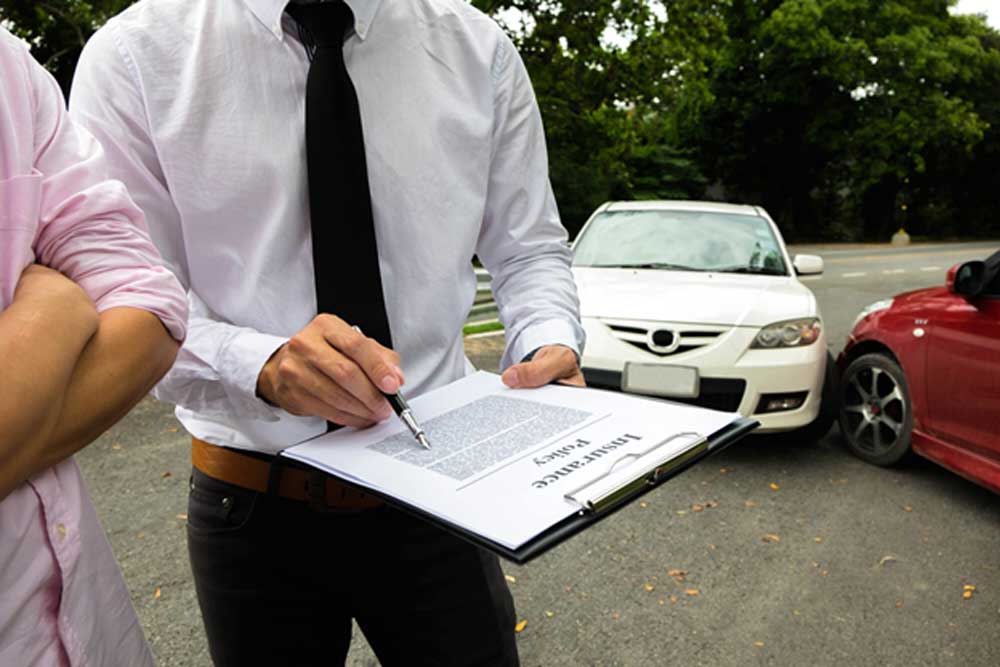According to reports, 87% of drivers in the US are insured. The remaining drivers either drive uninsured vehicles illegally or are from states where auto insurance coverage is not mandatory.
The statistics show how critical it is to have adequate insurance coverage to protect your car from the unseen. Regardless of how careful you are on the road, you could run into a negligent driver and end up in a crash. Besides, your vehicle could be stolen, torched, or vandalized.
What’s next? Filing an auto insurance claim is your best shot to recover from such unexpected losses. And here is everything you should know about filing a claim:.
What Is an auto insurance claim?
It is helpful to understand what a car insurance claim entails before attempting to file a claim after an accident.
A claim is more of a request to the insurance company to compensate you for the damages resulting from an auto accident, fire, theft, or vandalism. Note that there are a range of auto insurance policies suited for varying incidences.
You must ensure that your policy covers the specific occurrence in question before you file a claim. Suppose you or your passengers sustained bodily injuries following an accident. You must have personal injury coverage to get compensation.
On the other hand, if you were liable for an accident that damaged another individual’s car or property, you would need liability coverage to cover the costs.
Steps for Filling Out a Car Insurance Claim
When filing a car insurance claim, it is paramount to understand what you need and what to expect. This ensures a smooth claim filing process and saves you from making mistakes that could delay compensation.
Remember that every insurer is different, but most requirements are similar.
Gather Relevant Documents and Information About the Accident
As soon as a car crash, theft or fire happens, you should collect as much information about the incident as you can. You ought to prove that, indeed, you were not liable for the accident. And if you were, the evidence should prove that it was not intentional.
Contact the traffic police to record a statement. The police will also draw their conclusion based on your comments, so be careful with how you answer questions.
Take clear photos and videos of the scene without leaving even the tiniest details. Capture the car damages, bodily injuries, and the scene where the accident occurred.
Write a summary of everything you remember about the accident. Highlight what happened before, during, and after the incidence. You also need to present:
- The names, addresses, and contact information of other persons involved in the accident
- The names, contacts, and badge numbers of the traffic officers who responded to the accident
- Name and contact information of any present witnesses
- A copy of the recorded accident report
Do not forget to note the location and time when the accident occurred.
What if the car was stolen? It will help if you have comprehensive details of the care aspects, such as the make and color. Explain where the vehicle was parked, the last time you were in its possession, and events that led to the incident.
Your vehicle is a significant investment. You may not always be capable of stopping accidents. But you can protect it from avoidable mishaps, such as theft.
Get a reliable GPS tracker for car service to keep thieves at bay and always have peace of mind.
Contact Your Insurer
It will help if you inform your insurance company about the accident as soon as possible. Otherwise, the insurer might deny you coverage.
Be careful with the information you disclose to the insurance company. Offer detailed background information of how the accident occurred, but be careful not to say anything that will label you as the at-fault driver.
It will help if you let your car accident attorney represent you when initiating the claim. The lawyer will advise you regarding what documents to present to increase your chances of compensation.
Furthermore, the attorney understands auto insurance better than you do, so there are minimal chances of errors. The expert can quickly check the statute of limitations deadline to ensure that you do not exceed the appropriate period to file a claim.
Ask Relevant Questions
It is critical to ask relevant questions to help you understand what your auto insurance policy covers. Among the essential elements to know when filing a claim is your deductible.
The deductible is the amount you are expected to pay out of pocket. Suppose the total car damages amount to $800. And you have a comprehensive coverage deductible of $300.
The insurer would pay $500 for repairs, and you would be required to cater to the rest.
The common coverages when selecting deductibles include comprehensive coverage and collision coverage. Confirm how much the deductible is to establish if you can comfortably pay for the damages.
Furthermore, if your coverage includes rental reimbursement coverage or transportation expenses coverage, the insurer will advise you on the way forward. The insurer should explain to you about reimbursement and the coverage limit for rental cars.
Get a Compensation Estimate
The insurer sends an adjuster to assess your vehicle and the extent of damages. This helps to establish the initial estimate, depending on the costs of repairs or replacement.
Depending on your insurer, you may have to take your vehicle to a repair shop for cost estimates. The insurance company will consider the car repair provider’s estimate to determine how much you should get for compensation.
Keep in mind that the insurer will try tricking you into accepting the lowest offer as they try to maximize their profits. Having an attorney ensures that you get the best value for your compensation. The lawyer possesses unmatched negotiation skills and will not rest until you get what you deserve.
Understand How Long It Will Take To Settle Claim
Most states have a law that protects consumers by setting a specified time for claim settlement. In most cases, the insurer should get back to you within 40 days. Check with your state’s claims center or insurance department to ensure that the insurer processes the claim on time.
Understand the Auto Insurance Claim Filing Process to Eliminate Chances of Rejection
Now that you understand how making an auto insurance claim works, you are better positioned to avoid common mistakes. In return, your claim will be approved, and you can get back on the road sooner.
Check out our articles for more helpful tips and guides.











